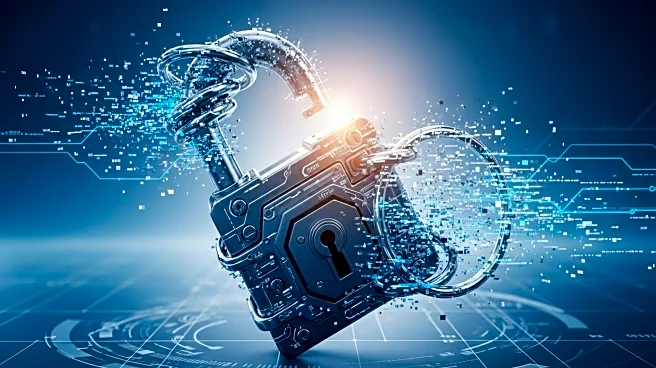What is the story about?
What's Happening?
The Government Accountability Office (GAO) has reported that the Pentagon is facing significant challenges in maintaining critical U.S. Navy systems due to vendor lock-in and lack of intellectual property rights. The GAO highlights that the Pentagon does not own the intellectual property rights to spare parts and repair instructions, making it dependent on Original Equipment Manufacturers (OEMs) for inventory and delivery timelines. This dependency results in delayed maintenance for systems such as the F-35 fighter and Virginia-class attack submarine. The GAO found that none of the programs studied had fully incorporated the Pentagon's policies for intellectual property acquisition, leading to difficulties in evaluating and utilizing engineering documents. The report suggests that the Navy's reliance on OEMs for technical data rights restricts its ability to maintain readiness, with delays in yard repair periods and inefficiencies in parts cannibalization practices.
Why It's Important?
The GAO's findings are crucial as they highlight systemic issues affecting the readiness and operational capabilities of the U.S. Navy. Vendor lock-in and lack of data rights hinder the Navy's ability to perform timely maintenance, impacting the availability and effectiveness of key military assets. This situation poses a risk to national security, as delayed maintenance can reduce the fleet's readiness and response capabilities. The dependency on OEMs for parts and repair instructions also increases costs and limits the Navy's flexibility in managing its resources. Addressing these issues is vital for ensuring the Navy's operational efficiency and maintaining its strategic advantage.
What's Next?
The GAO recommends legislative changes to require contractors to provide more detailed manufacturing and process data as part of procurement contracts. It also suggests revising Pentagon policies and procedures on intellectual property acquisition to improve long-term sustainment of military systems. These recommendations aim to reduce vendor lock-in and enhance the Navy's ability to manage maintenance independently. The Pentagon and Congress may need to consider these proposals to address the identified challenges and improve the Navy's maintenance processes.

















